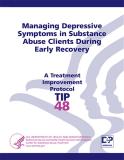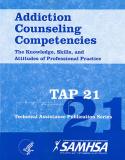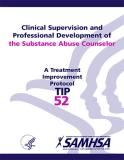
This resource guide presents healthcare professionals working with people living with physical and sensory disabilities with information about substance use disorders, including risk factors and warning signs. It also discusses screening, types of substance use services, and strategies for helping clients.
Units per Product
Download
Substance Use Disorders in People with Physical and Sensory Disabilities
File Type: PDF
File Size: 596 KB







